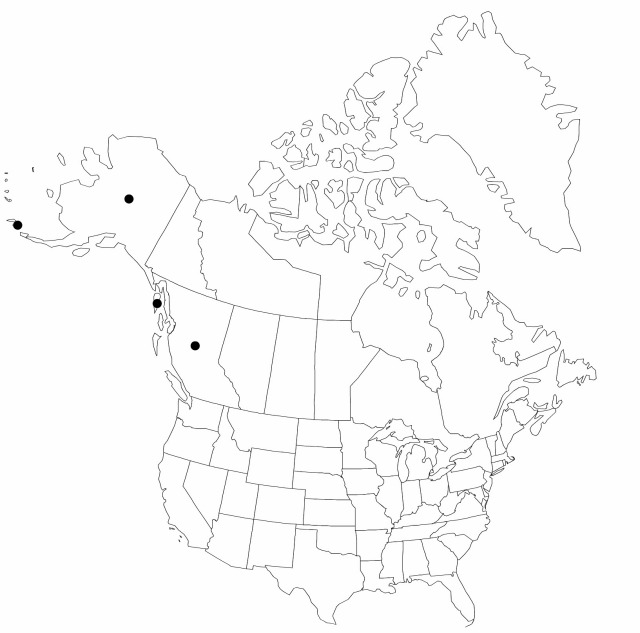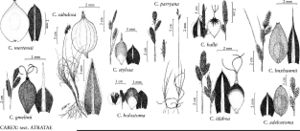Carex gmelinii
Bot. Beechey Voy., 118, plate 27. 1832.
Plants densely cespitose. Culms 20–60 cm, distally scabrous. Leaves 2–4 mm wide. Inflorescences: proximal bracts equaling or exceeding inflorescences; spikes separate, short-oblong or elongate, 10–30 × 5–10 mm; proximal spikes sometimes spreading, long-pendunculate; distal spikes erect, short-pendunculate; lateral 2–4 spikes pistillate, contiguous, of similar length; terminal spike gynecandrous. Pistillate scales dark brown or black to margins, lanceolate, slightly shorter, equaling, or exceeding and as broad as perigynia, midvein lighter colored than body, conspicuous, raised, prominent, mucronate. Perigynia ascending, brown, vein, elliptic, 3.5–5 × 2–3 mm, apex gradually or abruptly beaked, smooth; beak 0.2–0.3 mm, truncate or obscurely bidentate, smooth. Achenes nearly filling body of perigynia. 2n = ca. 62.
Phenology: Fruiting Jun–Sep.
Habitat: Coastal cliffs, beach meadows, sand dunes, swales, gravels
Elevation: 0–10 m
Distribution

B.C., Alaska, Asia (Japan, Russian Far East).
Discussion
Selected References
None.
